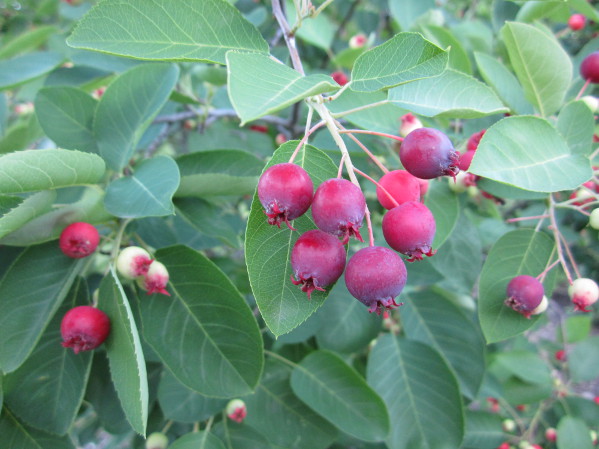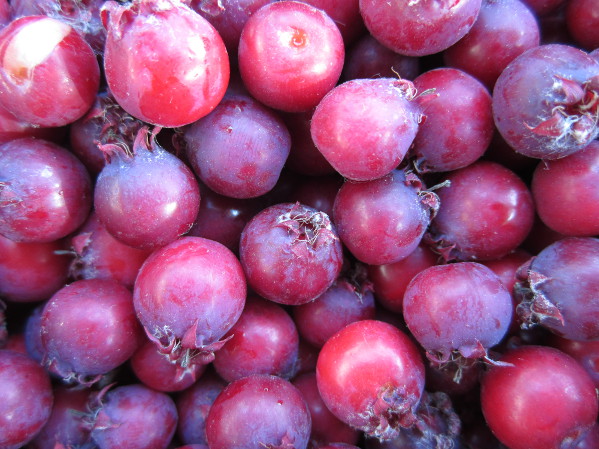Juneberry (Amelanchier) is an easy-to-find multi-stemmed shrub or tree found widely across Michigan. Also known as Serviceberries, Juneberries are widely planted as ornamental trees but also occur in the wild. They have blueberry-like fruits that can be harvest in June.
The berries have a flavor that tastes like a combination of apples and blueberries while the seeds have an almond-like taste.
Identification
Juneberries are small shrubs or trees. They have opposite, stalked, oval, toothed, pointed leaves that grow about two inches long. In the spring, white five-petal flowers appear before the berries.
The berries have a crown on the side of the stalk that makes them easy to distinguish. They are about ¼ to 1/3 inch across resembling blueberries. They start red and later turn a blue/black color as they ripen:
Juneberries on a tree.The trees have a tight and smooth gray bark:
Bark of a Juneberry TreeHarvesting
To harvest Juneberries, simply pull them off the tree. The darker the berries the better they taste, but once they begin to darken they can be eaten even when they are more red than blue/black.
Harvested JuneberriesThe berries can be eaten raw, used in muffins, made into pies, dried, or in most other ways one would eat berries.
Local Wild Plant Profile: Juneberry was published on July 29, 2013